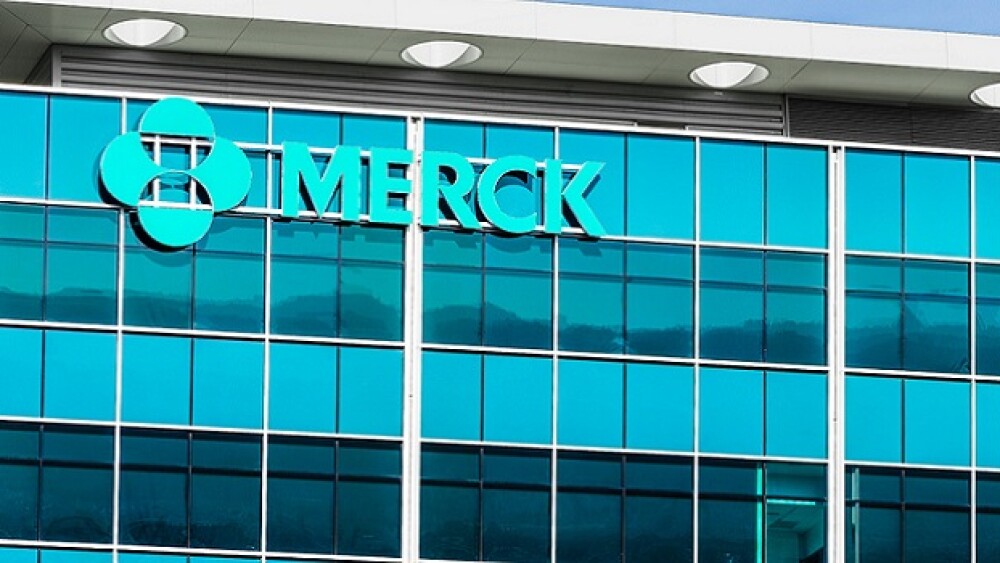Keytruda can now be used in the European Union for patients with resectable non-small cell lung cancer at high risk of recurrence in combination with platinum chemotherapy, then continued as a monotherapy afterwards.
Pictured: Merck building and sign in Silicon Valley/iStock, Sundry Photography
Merck announced Thursday that the European Commission has approved the use of its anti-PD-1 therapy Keytruda, in combination with platinum-containing chemotherapy, for resectable non-small cell lung cancer first as a neoadjuvant treatment and then continued as a monotherapy afterwards.
The therapy already has half a dozen indications in non-small cell lung cancer (NSCLC). The new expansion applies to resectable NSCLC at high risk of recurrence in adults. According to Merck, the EC’s decision “marks the first approval in Europe for an anti-PD-1/L1 therapy in resectable NSCLC based on positive overall survival results and represents the sixth approval for Keytruda in lung cancer in Europe.”
Europe’s regulator gave the green light following the results of the Phase III KEYNOTE-671 trial. At just under 30 months follow up, the regimen significantly improved overall survival, reducing the risk of death by 28%, regardless of PD-L1 status. Patients treated also showed improved event-free survival, with a 41% reduction in risk of disease recurrence, progression or death.
Despite advancements, lung cancer continues to carry the world’s highest mortality rate and accounting for around one in five cancer deaths in the U.S. Thursday’s announcement makes it the sixth lung cancer indication added by the EC for Keytruda, with 27 indications overall in Europe. The U.S. approved the same use, specifying tumor size of greater than or equal to four centimeters or node positive in October 2023.
Thursday’s approval allows for Merck’s marketing of the Keytruda regimen for the indication in all 27 EU member states, as well as Iceland, Liechtenstein, Norway and Northern Ireland.
Keytruda generated $25 billion in sales in 2023 for Merck. The cancer drug is forecast to top $30 billion in sales by 2026. However, Keytruda is facing a looming patent cliff at the end of the decade.
To help mitigate the effects, Merck is trying to bolster its oncology platform by working on combined immunotherapy approaches to supercharge its targeted therapies and continuing studies to expand Keytruda further before the patent expiration.
“We are eager to build on this momentum as we plan to seek additional approvals of this regimen around the world,” Marjorie Green, head of oncology for Merck Research Laboratories.
Kate Goodwin is a freelance life science writer based in Des Moines, Iowa. She can be reached at kate.goodwin@biospace.com and on LinkedIn.






